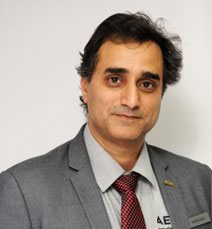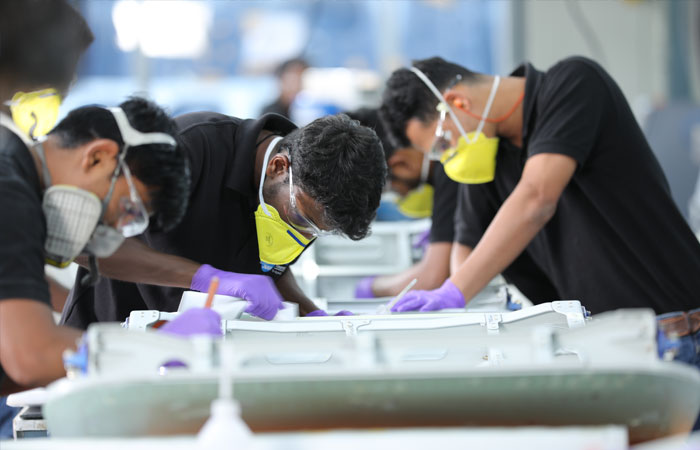
As India positions itself as a premier destination for global aerospace manufacturing, the need for skilled aerospace engineers and advanced training programs becomes increasingly imperative.
India’s aerospace manufacturing sector has witnessed a surge in activity, driven by the government’s ‘Make in India’ initiative, aimed at transforming the nation into a global manufacturing hub. However, the growth trajectory of this sector is impeded by a significant skills gap. According to reports from Forbes and Deloitte, the aerospace industry is experiencing a severe shortage of qualified talent, with many positions remaining unfilled. This talent crunch presents a formidable challenge to the industry’s expansion and its aspirations of becoming a global leader.
One of the pivotal steps towards bridging this gap is the establishment of targeted skilling and training initiatives. Companies like major Aerospace components maker Aequs, and Tata Airbus which recently inaugurated its own training centre, have had to take up nurturing the required skills inhouse.
This exemplifies the urgent need for structured programs that can equip the workforce with the necessary talents to meet the evolving demands of the aerospace industry. Such initiatives are crucial in creating a robust talent pool capable of driving innovation, product development, and maintaining global competitiveness.
Aequs has been at the forefront of these efforts and set up a dedicated centre to impart skills required for the Aerospace sector nearly a decade ago. Called the Industrial Knowledge Centre (IKC), this center with a broader scope and mandate to cover other industry sectors also, has further collaborated with Medhavi Skills University (MSU), and the National Skill Development Corporation (NSDC) to set up a Centre of Excellence for Aerospace Manpower and Capacity Building at the Aequs SEZ, which is the first notified precision engineering SEZ in India.
The CoE aims to equip youth with the latest, industry-relevant technical education. Designed under the new National Credit Framework and National Education Policy 2020, this programme offered under the Centre of Excellence aims to offer technical education, making it more practical, relevant and accessible.
By providing industry-specific training and development, Aequs ensures continuous learning and equips its employees with the competencies required to excel in the aerospace manufacturing domain.
“At Aequs the demand for pure-play Aerospace engineers tends to be higher than the industry average. This stems primarily from the unique character of our manufacturing operations spread across the aerospace engineering value chain. We have to hire more people across capabilities and skill sets demand for which has increased with a lot of work coming to the Indian aerospace supply chain from global OEMs”, explained Rajeev Kaul, MD & COO, Aequs.
The growing need for aerospace engineers in India underscores the importance of a skilled workforce in driving innovation and global competitiveness. To attract younger generations and diverse groups towards aerospace careers, it is essential to implement strategies that highlight the exciting opportunities within the industry. This includes promoting the economic benefits and job creation potential of a thriving aerospace sector.
Public-private-academia collaboration is critical in creating a future-ready talent pool. By aligning educational curricula with industry needs and fostering partnerships between industry leaders and academic institutions, India can develop a workforce that is well-prepared for the challenges of the aerospace sector. Such collaborative efforts are vital in ensuring that the talent pool remains dynamic, adaptable, and equipped with cutting-edge skills.
The aerospace manufacturing sector in India holds immense potential for growth and innovation. However, realizing this potential requires a concerted effort to bridge the skills gap through targeted skilling and training initiatives. By fostering continuous learning, promoting industry-academia collaboration, and implementing strategies to attract diverse talent, India can build a robust workforce capable of propelling the aerospace industry to new heights, thereby driving economic growth and establishing itself as a global aerospace manufacturing powerhouse.



